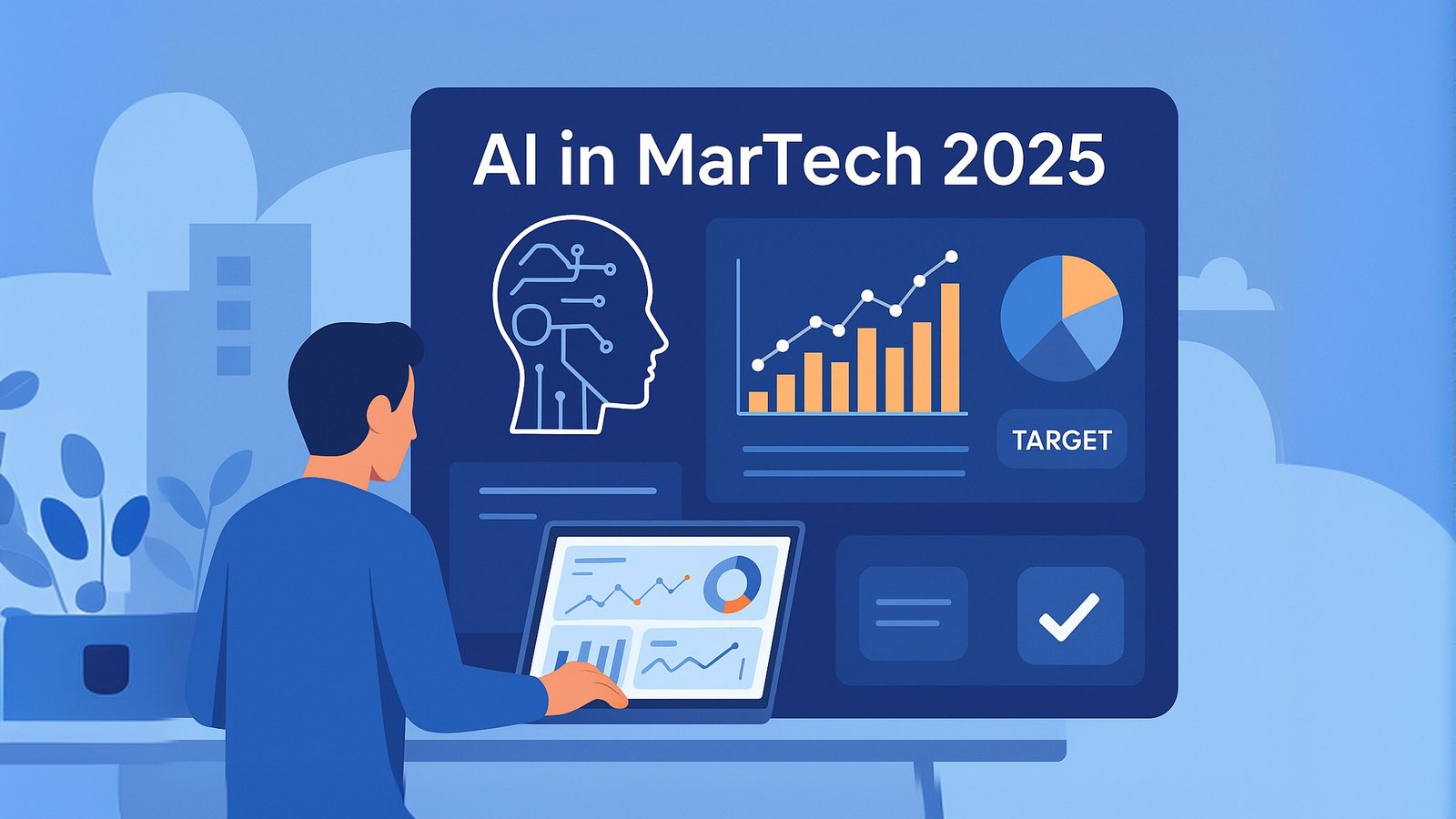AI in MarTech 2025 marks a shift from reactive campaigns to predictive marketing built on intelligence and speed. Instead of guessing customer needs, brands now rely on real-time insights and behavioral analytics to understand what users want often before they act.
A HubSpot report in 2025 found that marketers using AI-driven MarTech achieved up to 28% higher conversions and faster campaign optimization. That’s because predictive models learn, test, and adapt faster than human teams ever could.
How Predictive Targeting Changes Marketing Strategy
Predictive targeting is the heartbeat of AI in MarTech 2025. By reading signals such as purchase intent, session duration, and social sentiment, it helps brands connect messages with real intent.
AI-powered tools like Adobe Sensei, Salesforce Einstein, and Demandbase AI help marketers:
- Find audiences most likely to take action
- Refine ad budgets through behavior-based segmentation
- Deliver dynamic landing pages that adapt in real time
For example, when users browse “eco-friendly home gadgets,” predictive systems display personalized recommendations instantly improving relevance and conversion rates.
Smarter Campaign Automation in 2025
Automation isn’t about scheduling anymore — it’s about intelligence. In 2025, AI in MarTech platforms create campaigns that continuously optimize themselves based on engagement data.
Modern stacks integrate:
- AI-powered content engines that match tone and intent per device
- Generative tools like Jasper or Copy.ai for context-based ad copy
- Predictive testing models that pause underperforming assets automatically
Each campaign becomes smarter with every interaction-learning from micro-behaviors, time of day, and emotional tone.
Key Benefits Marketers See with AI in MarTech 2025
- Efficient Budget Use – Predictive analytics reduce wasted ad spend
- Dynamic Personalization – Audiences receive relevant content every time
- Instant Decision-Making – Dashboards simplify reporting in seconds
- Better ROI and Retention – Predictive journeys build stronger loyalty
Gartner’s 2025 benchmark showed brands using AI-powered MarTech platforms improved customer retention by 22% over traditional CRMs.
What Marketers Should Avoid
AI is transformative, but it’s not perfect. Common risks include:
- Bias in training data that misreads user intent
- Compliance risks under stricter 2025 GDPR and DPDP Act laws
- Over-automation that removes human creativity
Don’t: rely completely on machine decisions. AI is a co-pilot not a replacement for human judgment.
Mobile-First Marketing: The 2025 Imperative
With 70%+ of marketing interactions happening on mobile, AI in MarTech 2025 focuses heavily on speed and accessibility:
- Voice-driven dashboards for quick campaign analysis
- Predictive push notifications triggered by location and intent
- Responsive layouts that adapt automation tools to any screen
This ensures campaigns perform well across devices without losing data accuracy.
The Future of AI in Marketing Automation
By 2026, 80% of MarTech ecosystems will include real-time AI assistants that generate and launch campaigns in minutes. These assistants will merge CRM, analytics, and content workflows into one interface making marketing more predictive, not reactive.
As brands combine data-driven intelligence with human storytelling, marketing will shift into an era where technology amplifies creativity not replaces it.
Forrester’s 2025 forecast confirms this movement: predictive MarTech adoption is set to grow by 42% year-over-year.
Final Thoughts
AI in MarTech 2025 empowers marketers to deliver campaigns that feel personal, relevant, and timely. Predictive targeting and intelligent automation are not future concepts anymore — they are the new standard.
When creative intuition meets machine precision, brands can finally anticipate what customers want before they even express it.



I appreciate you sharing this blog post. Thanks Again. Cool.